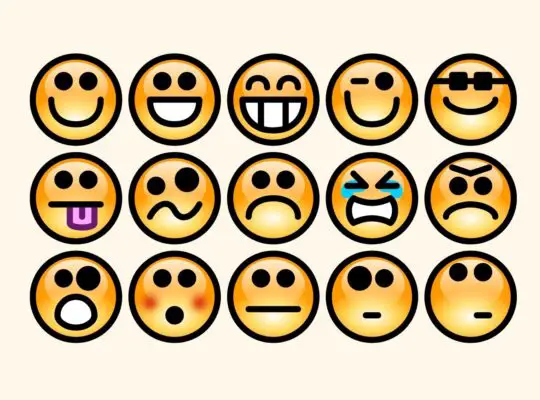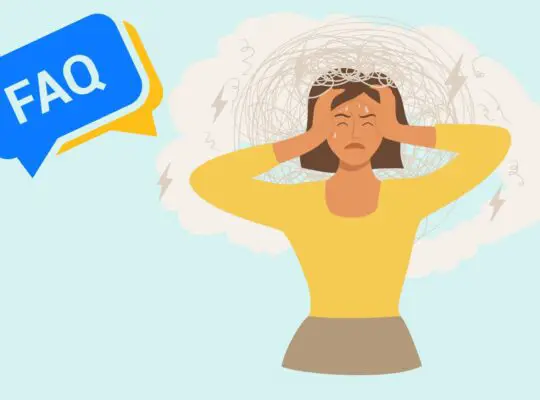What Is Chronic Stress?
According to WebMD,
- 43% of all adults suffer from stress related health problems
- 75% to 90% of all visits to the doctor are for stress complaints
- Stress has been declared a hazard in the workplace by the Occupational Safety and Health Administration (OSHA)
- The bill for stress costs to American industry is above $300 billion annually
- “The lifetime prevalence of an emotional disorder is more than 50% often resulting from chronic, untreated stress reactions”
Do you know what your body experiences during a stressful situation? Your body triggers the alarm and suddenly you’re on high alert, cortisol floods your system, your brain thinks you are in mortal danger and that fight or flight instinct is bearing down on you.
Once upon a time, that instinct kicked in when our ancestors were faced with a ferocious beast in the wild – unfortunately, today’s ferocious beasts tend to be angry bosses, traffic, and a nagging partner.
While this does produce an energy surge, a boost to reflexes, and razor sharp focus it’s something that is only healthy in short bursts. After the stressful event subsides, everything should return to normal and you can go about your day just as you had been. Unfortunately, that’s not how chronic stress operates.
Chronic Stress
Sadly, for many people stress is ongoing. Any type of event can lead to chronic stress, whether it’s a boss who is always on your back to the point of bullying, a loved one in the hospital for an extended period of time, or the breakdown of a relationship.
Prolonged stress is chronic stress and it is when the body is trying to keep up by flooding you with cortisol constantly. While the American Psychological Association says it’s effective in a short-term stressful event, prolonged exposure to high levels of cortisol can break you down.
You aren’t physically (or mentally) capable of being that alert for that length of time. Therefore, while those hormones are meant to give you a boost to get you through they are really working to take you down.
Symptoms Of Chronic Stress
Your breaking point will be different from that of others; however, there are typical signs that your body will start to give you which indicate the presence of chronic stress in your life. Once you reach that point your physical and mental health are being compromised.
Physical
- Frequent headaches
- Struggling to relax or wind-down
- Clenching of the jaw or jaw pain
- Teeth grinding
- Stammered speech or stuttering
- Trembling or shaking hands or lips
- Muscle spasms
- General Body aches
- Back pain
- Neck pain
- Shoulder tension and pain
- Dizziness and/or light-headedness
- Sweating
- Feeling flushed or blushing of the facial cheeks
- Sweaty and/or cold feet and/or hands
- Dry mouth
- Frequent illness, such as flu, colds, or infections
- Hives, skin rashes, itching
- Digestive problems
- Heartburn
- Stomach pain
- Nausea
- Diarrhea
- Constipation
- IBS
- Labored or difficult breathing
- Chest pain, heart palpitations, rapid pulse
- Frequent urination not otherwise explained
- Exhaustion, fatigue and loss of energy
- Unexplained weight gain or loss
Psychological/Mind
- Panic attacks
- Anxiety
- Excessive worry
- Depression
- Loss of concentration
- Loss of focus
- Problems with learning and cognitive ability
- Racing thoughts
- Brain fog
- Forgetfulness and memory problems
- Difficulties with making decisions
- Overwhelm
- Burnout
Mood
- Restlessness
- Nervousness
- Nervous habits
- Nail biting
- Fidgeting
- Feet tapping
- Angry outbursts
- Hostility
- Frequent bouts of frustration
- Mood swings
- Irritability
- Edginess
- Overreaction to petty annoyances
- Frequent crying spells
- Loneliness
Lifestyle And Habits
- Changes in appetite, with unexplained increases or decreases
- Binge eating or eating behind stress
- Poor sleep, including insomnia, and nightmares
- Fighting with people close to you
- Alienation from family and friends
- Obsessive or compulsive behavior
- Drugs
- Alcohol
- Gambling
- Impulsive shopping
- Smoking of cigarettes
- Loss of productivity at work
- Excessive defensiveness or suspiciousness
- Communication problems
- Social isolation and withdrawal
- Lack of sexual desire or interest
If this describes you then there is every chance that you are experiencing chronic stress.
Chronic Stress Contributes To An Unhealthy Lifestyle
According to WebMD, healthy lifestyle habits become more critical as you age, and poor diet, lack of exercise, smoking, too much drinking and sleep deprivation actually accelerate aging.
Chronic stress contributes to an unhealthy lifestyle. When you lead a stressful life that constantly leaves you feeling like you’re chasing your tail it’s no wonder you break down and give in to a plethora of temptations.
Stress is everywhere these days as people put in longer working days, have to commute longer, sit in traffic, raise their kids, fit in exercise, sleep, and struggle to make ends meet… those stresses of everyday life are seriously damaging to your health.
Turning to unhealthy choices, though, isn’t going to help matters. In fact, it’s only going to continue fueling the cycle and you will be in a never-ending battle against your own body.
While stress can make you perform better and work harder in a short-term event or situation, chronic stress is damaging and it can literally kill you.
Poor Choices
When you are stressed, you are less likely to make healthy choices in diet, and exercise.
Alcohol & Cigarettes
Chronic stress can make it difficult for you to get a handle on your emotions and when you’re in one giant mood swing, it’s easy to turn to substances to get a hold of that feeling.
This is when drugs and alcohol (or even cigarettes) can be abused. You might think it’s relaxing you and helping you chill out, but those feelings are temporary and they lead to an even bigger crash, which causes your mood to drop even more. Alcohol is a depressant so don’t think you can win by using it to self-medicate. Not only that but alcohol can prevent you from getting a good night’s sleep and when you’re under stress, there is nothing more important than rest. A lack of sleep can fuel your stress and cause a whole host of health problems on its own.
Drugs
Whether you turn to uppers to help you get through your day despite your exhaustion or you look to downers to help you relax – this type of substance abuse is destructive. Not only will the substances themselves affect your physical health, but getting into a vicious cycle means experiencing withdrawals and serious crashes when you aren’t constantly feeding a new habit (or addiction).
Even if the downers do help you get to sleep, the sleep you’re getting is not restful or helpful because there’s a good chance your brain isn’t getting the chance to download the day’s information and reboot because your body is trying to deal with the substance that you have introduced to your system.
Emotional Eating
This issue is two-fold. A lack of sleep and stress can induce you to make food choices that you wouldn’t do under normal circumstances. Additionally, dealing with mood swings and heightened emotions may cause you to seek comfort in food. Neither way, it’s not a healthy response, nor will the food choices you make during these times be healthy.
University of Miami researchers discovered that stressful situations could trigger you to eat 40% more food than you could would in a normal situation (Stress and Eating Behaviors, Yau, et al). That’s almost half and the effects could be devastating.
This habit can also result in heavy weight gain, adding more pressure to your heart and increasing the risk of Type 2 Diabetes, heart attack, stroke, and cancer. Don’t forget that in addition to causing weight gain, it can also contribute to premature aging, heart disease, and a whole host of other diseases and illnesses that you don’t need in your life.
Stress, Aging and Telomeres
According to The American Institute Of Stress,
“All the cells in our body contain tiny clocks called telomeres that can determine how long they will live. Telomeres are little caps at the end of chromosomes that prevent loss or injury to genetic information during cell division. Each time a cell divides, part of the telomere is lost and it becomes shorter. When a telomere eventually disappears because of repeated cell divisions, chromosomal damage prevents the cell from accurately reproducing itself. This shortening and eventual erosion of telomeres is prevented or reduced by telomerase, an enzyme in cells that preserves their length. Many believe that telomere destruction and reconstruction is related to the balance between aging and cancer and explains why cancer is more common in the elderly.”
Replicative senescence is the stage where cells lose the ability to divide further, and experts believe that this process is what wears cells out and contributes to shorter life spans and premature aging. Cells with long telemores are healthy and live longer, but shortened telemores have been linked to serious medical complications and disease, including type 2 diabetes, osteoporosis, compromised immunity and coronary heart disease.
According to the American Diabetes Association, “Aging is a major risk factor for a number of complex diseases including cancers, cardiovascular disease, and type 2 diabetes, yet the biological processes linking aging and disease risk are poorly understood. A potential mediator of age-related increases in disease risk may lie in repetitive sequences of DNA known as telomeres.”
While telomeres naturally shorten in older age, (Determination of telomere size in humans: a twin study of three age groups; Slagboom PE, et al) the rate of the shortening process does vary from one person to the next (Rise in insulin resistance is associated with escalated telomere attrition; Gardner JP, et al).
According to the American Psychological Association, “A number of studies have linked stress with shorter telomeres, a chromosome component that’s been associated with cellular aging and risk for heart disease, diabetes, and cancer.”
Researchers from UCLA have not only confirmed prior findings that subjects living with chronic stress have shorter telomeres, they have discovered the mechanism that explains just how this occurs.
The shortening of telomeres is prevented or lowered by a process known as telomerase that keeps cells young by preserving their length and maintaining their ability to effectively divide and reproduce.
The UCLA study found that secretion of the stress hormone cortisol suppresses telomerase activation in immune system cells, which leaves them unprotected during cell division and so over time they become shorter leading to premature cell aging and distorted cell replicas that increases risks for cancer and other chronic diseases.
A 2012 study, published in the journal PLoS ONE, discovered that subjects with the most job stress had the shortest telemores, and those short telemores caused cells to die.
Elizabeth Blackburn, Nobel Prize winner in Physiology or Medicine 2009 and author of The Telomere Effect: A Revolutionary Approach to Living Younger, Healthier, Longer (with Elissa Epel) who is currently the President of the Salk Institute for Biological Studies told The Guardian, “Nobody had any idea that meditation and the like, which people can use to reduce stress and increase wellbeing, would be having their salutary and well-documented useful effects in part through telomeres. The book is also recognizing how much control we can have. Small tweaks in how you approach stress, for example, can lead to long-term habits that make a difference.”
Anticipation Of Stress May Accelerate Cellular Aging
Another study (Elissa Epel, et al) published in Brain, Behavior, and Immunity found that 50 female subjects who were most threatened by anticipated stress related to public speaking, and solving math problems had shorter telomeres.
More interesting is the fact that half of the study subjects were caretakers of people with dementia and so had higher levels of stress anticipation than subjects who were not, which suggests that those with chronic stress levels are more susceptible to cellular aging from higher levels of anticipated stress in every day life.
Stress and Cognitive Decline
Memory And Mental Decline
The American Institute Of Stress (AIS) notes that stress destroys cells in the hippocampus region of the brain that regulates memory. While age-related memory decline is expected, one study that followed more than 1200 seniors without any evident memory problems for twelve years who were found to have mild cognitive impairment resulting from stress were at a much higher likelihood of developing Alzheimer’s disease.
During chronic stress, the stress hormone cortisol shrinks the hippocampus, which regulates memory while increasing the size of the amygdala, a brain region that is deeply entwined with emotional reactions. This makes the brain primed to respond to the fight of flight stimulus, and make decisions based on emotions as opposed to working memory and logic.
Things would not be so dire if following oxidative damage new cells were formed, but stress shuts this down as well. In particular is a protein named BDNF, which stimulates the formation of new brain cells and that is suppressed by cortisol. This speeds up aging and deterioration of the brain and can explain why some people experience significant cognitive dysfunction under high stress.
AIS further reports concerns over strong evidence that finds memory loss beginning in individuals in their forties from increased stress. Other research has found that high levels of stress greatly contribute to memory problems and vulnerability to cognitive processes and dementia disorders.
A 38-year study, (Sahlgrenska Academy at the University of Gothenburg) that looked at 800 women found psychosocial stressors during midlife to be linked with incidence of long-term distress, and Alzheimer’s disease. The study team concluded, “This suggests that common psychosocial stressors may have severe and long-standing physiological and psychological consequences.”
Another study, (The effects of cortisol increase on long-term memory retrieval during and after acute psychosocial stress) looked at short and long-term memory using students whose task was to retrieve/recall emotionally neutral and negative words.
The subjects learned some of the words one day before each of the tests and the others were learned five weeks prior. “Within the stress condition, retrieval of negative words, 5 weeks after learning, was impaired both during and after the stress task, compared to the control group,” the researchers wrote.
German scientists studied 60 subjects who were exposed to mild forms of emotional and situational stress. It turns out that stressed out subjects took 10% more time to recall information they recently learned. Researchers explain this happened because the stress hormones, cortisol and noradrenalin, flooded the prefrontal cortex of the brain that process information and controls memory and retention.
Alzheimer’s Disease
Deterioration of memory and cognition are key hallmarks of Alzheimer’s disease that affects about 5.2 million people in the United States alone. The Alzheimer’s Association predicts, that in only 5 years, and unless a cure or medicinal solution is found, there will be a 40% increase of diagnosed patients age 65 or older and that percentage will increase to 300% by the year 2050.
Chronic stress results in long-term high levels of the stress hormone cortisol in the body, which is considered toxic to the brain. Science has identified high levels of cortisol to be a significant contributor to Alzheimer’s and other dementia conditions.
Focus And Concentration
Authors of the book, HeartMath Brain Fitness Program, say, “Emotional stress has a major impact on our immediate and long-term cognitive functions, and underlies many of the mental health problems in society today.” “Our ability to focus, concentrate, and remember has a lot to do with how much emotional stress we are experiencing.”
Stress And Heart Coherence
Chronis stress often results in anxiety, depression, frustration, and anger and when these emotions are experienced for extended periods of time, they can have a negative effect on heart coherence.
“Coherence,” HeartMath Institute Director of Research Dr. Rollin McCraty writes, “is the state when the heart, mind, and emotions are in energetic alignment and cooperation. It is a state that builds resiliency – personal energy is accumulated, not wasted – leaving more energy to manifest intentions and harmonious outcomes.”
The negative emotions that are associated with states of chronic states cause erratic heart rhythms that affect mental capacities and block the ability to think clearly and the brain registers such emotions as stressful feelings.
Inflammation And Compromised Immunity
Aging naturally results in declines in immunity and compromises the body’s ability to defend itself against infection and inflammation, increases risks of age related arthritis, atherosclerosis, osteoporosis, cancers, type 2 diabetes, and dementia.
However, chronic stress makes matters worse as it well known to compromise immunity, which leads to accelerated biologic aging and how the body responds to hidden inflammation. The AIS reports these staggering findings.
- Stress significantly reduces the immune response to influenza and pneumococcal vaccine in the elderly
- Caregivers of those with dementia have been found to experience slow wound healing and shorter lifespans that may be linked to inflammation
- Interleukin-6 (IL-6) is a key indicator of subclinical inflammation that is believed to contribute to degenerative diseases. AIS reports a study that followed caregivers for six years and found a 4 times increase in IL-6 levels in those individuals versus control subjects of the same age, sex, health, and socioeconomic status.
- Another study found senior citizens who suffered from caregiver stress were 63% more likely to die within 4 years than caregivers who were not under the same amount of stress.
- Another study on telemores and stress found that spouses and children who were constant caregivers had a shortened lifespan of four to eight years.
Stress Can Lead To Vision & Hearing Loss
Part of the fight or flight stress response is the release of the hormone, adrenaline, which the body releases to create arousal and give the person under attack the opportunity to respond quickly to the given stressor. The release of adrenaline can cause temporary hearing loss. In an acute stress event, the adrenaline release is temporary and once the stress event ends, the body returns to normal.
However, the Mayo Clinic reports that under chronic stress, the prolonged and repeated adrenaline production results in constriction of blood vessels, which can lead to long-term decreases in hearing and vision capabilities.
Techniques To Manage Chronic Stress
You never want stress to become chronic, or long-term. Find healthy ways to manage your stress, there are many to choose from. Look at other areas of your life that you can change to reduce your stress levels. It’s something we don’t take seriously enough and we’re letting it take over our lives.
You must do everything possible to get your stress under control, so that you can reduce all the risks involved with stress related declines seen in the aging population and of course to prevent all the health risks associated with chronic stress at any age. There are many ways to manage chronic stress.
- The first is to identify the source of your stress and ask yourself how you can remedy this. It may be possible to take steps to reduce or eliminate your stressor altogether, however, that isn’t always possible.
- The Heart Math Institute’s (HMI) twenty years of research has concluded that positive emotions have an incredibly positive effect on reducing harmful chronic stress.
“Research has shown that sustained positive emotions lead to a highly efficient and regenerative functional mode associated with increased coherence in heart-rhythm patterns and greater synchronization and harmony among physiological systems,” HeartMath Institute Director of Research Dr. Rollin McCraty writes in his paper, Heart Rhythm Coherence – An Emerging Area of Biofeedback.
HMI’s many trials have shown participants to have “significant reductions in stress levels and improvements in cognitive functions” by practicing deliberate positive emotions that include compassion, love, and care.
- Creating a work/life balance
- Make sure you take every paid day off that is available to you and work at relaxing with hobbies or activities that you truly enjoy.
- If you cannot eliminate the source of your stress, you have to find a way to mitigate its damage. When you’re dealing with a hospitalized loved one or a relationship, ending this can be particularly difficult. However, the first step here is to start practicing self-care and that includes getting a good night’s sleep.
- It’s vital that you take time out for yourself, even if all you can manage is ten minutes a day – it’s a start. If need be, write some me time into your daily to-do list or your work schedule. Your body will thank you for it and it’s the perfect way to start getting chronic stress under control.
- Don’t be afraid to speak to your doctor about your symptoms.
- Aerobic exercise burns out cortisol levels promotes levels of beneficial endorphins in the brain that improve mood and general states of wellbeing.
- Make every effort to be on time, so you can avoid this common cause of stress.
- There are few things in life that illicit the relaxation response as well as meditation. Meditation calms, it’s really as simple as that, it is the exact opposite of the ‘fight or flight’ response that instead of raising everything like heart rate, blood pressure and breathing, it calms everything, including the mind.
- Eat a clean diet with whole food that is not only nutritious, but also fortifies the immune system, which is highly compromised by chronic stress. Processed foods, while convenient do nothing good for your health. Many fruits and veggies also actively help to reduce the effects of stress on the body, helping manage inflammation and oxidation.
- Appreciate all you have as gratitude improves your mood and reduces the stress hormone cortisol by 23% (University of California).
- Stop catastrophic thinking – when there is a lot of ongoing stress in your life, it is easy to become so overwhelmed that you lose perspective, which skews your perception of events. This is when thoughts like, “my life will never get better” or “everything is wrong” can take over and make stress worse and clear thinking unattainable.
So take the time to calmly put the situation into perspective. Evaluate whether your level of anxiety is proportional to the stressor in question. One way to correct this type of catastrophic and unproductive thought process is to sit down and actually make a list of what is wrong (stressors) and their causes and then list all the things that are fine in your life.
- Stop “what if” thinking, for example, “what if I crash my car now that I can’t pay for full coverage insurance,” “what if my child gets sick and I have to miss work, “what if there is a hurricane this season and I lose my home. This type of negative, needless, and unnecessary worry, anxiety and frustration fuels more stress and is really counterproductive. Instead, turn your energy to take proactive action to manage thois problems that already exist.
- MBSR or Mindfulness Based Stress Reduction is an 8-week program created by Jon Kabat-Zinn, PhD and is now considered one of the best and most effective stress management programs, based on mindfulness and meditation.
- Progressive Muscle Relaxation is an easy and convenient way to manage stress and is used by thousands of people to release tension and achieve a level of heighted relaxation.
- If chaotic and erratic days are a great source of stress for you, then create more predictability wherever and whenever possible. When you combine this with having an arsenal of tools to manage those stressful times, chronic stress becomes much more manageable.
- Yoga, Tai Chi, and Qigong are mind-body exercises, which many studies have shown to be very effective in managing chronic stress.
- Optimists are far more efficient at dealing with stress, one of the reasons for this is that they see the bright side to everything and this type of positive attitude influences the perception of stressful events reducing their effects. Positive thoughts also deter your mind from stress by focusing your attention on things that are 100% stress free.
- One of the most important elements in managing chronic stress is learning to manage your time effectively.
- Find time for some fun each and every day, even if it’s just for a few minutes. Fun and its associated emotions elicit the calming relaxation response in the body, which is the exact opposite of the arousing stress response.
- Deep breathing throughout the day engages the vagus nerve that signals the brain to slow blood pressure, heart rate and diminishes levels of cortisol in the body.
- Numerous studies find laughter to reduce stress hormones. So go ahead and watch those comedies, funny videos, seek out jokes and spend time with people who make you laugh.
- Music has incredible effects on the brain, it stimulates mood neurotransmitters, stirs emotions, and yes, it can reduce cortisol levels to help manage stress. Just consider how different music can make you move, relax, and go to sleep or even cry.
- Chronic stress means you need key nutrients more than at any other time; ask your doctor if you need a multivitamin.
- Support System And Social Network – Elissa Epel, PhD, director of the Center For Aging, Metabolism and Emotion at the University of California, San Francisco who has been researching the connections between chronic stress, telemore shortening, and accelerated aging for over 10 years said this is an interview with the American Psychological Association to the question of what risk factors of chronic stress are most underappreciated.
“Our social environment. How rich is your social fabric? How connected are you to the people in your social circle, starting with your family? A strong social network is probably the biggest buffer from toxic stress, next to exercise. Yet we often lack quality long-term social connections. There is frequent loneliness among high-risk groups like the elderly, who may be more isolated. For those of low income, many are working long and inflexible hours. Part of the problem is that there are limited minutes in the day, and if you are overworking, you are undercaring for your social network and for yourself.”
Your social network provides support through the most stressful times; this includes friends, relatives, and even co-workers. Something as simple as talking over your stressful day with a friend, going out to the movies with your family, or dancing with friends bolsters your personal relationships and offers respite when you’re under stress.
- If you are having trouble getting your stress under control, see your doctor or a mental health professional, this is so important. With help, you can manage your stress.
Disclaimer: This publication is for informational purposes only and is not intended as medical advice. Medical advice should always be obtained from a qualified medical professional for any health conditions or symptoms associated with them. Every possible effort has been made in preparing and researching this material. We make no warranties with respect to the accuracy, applicability of its contents or any omissions.







